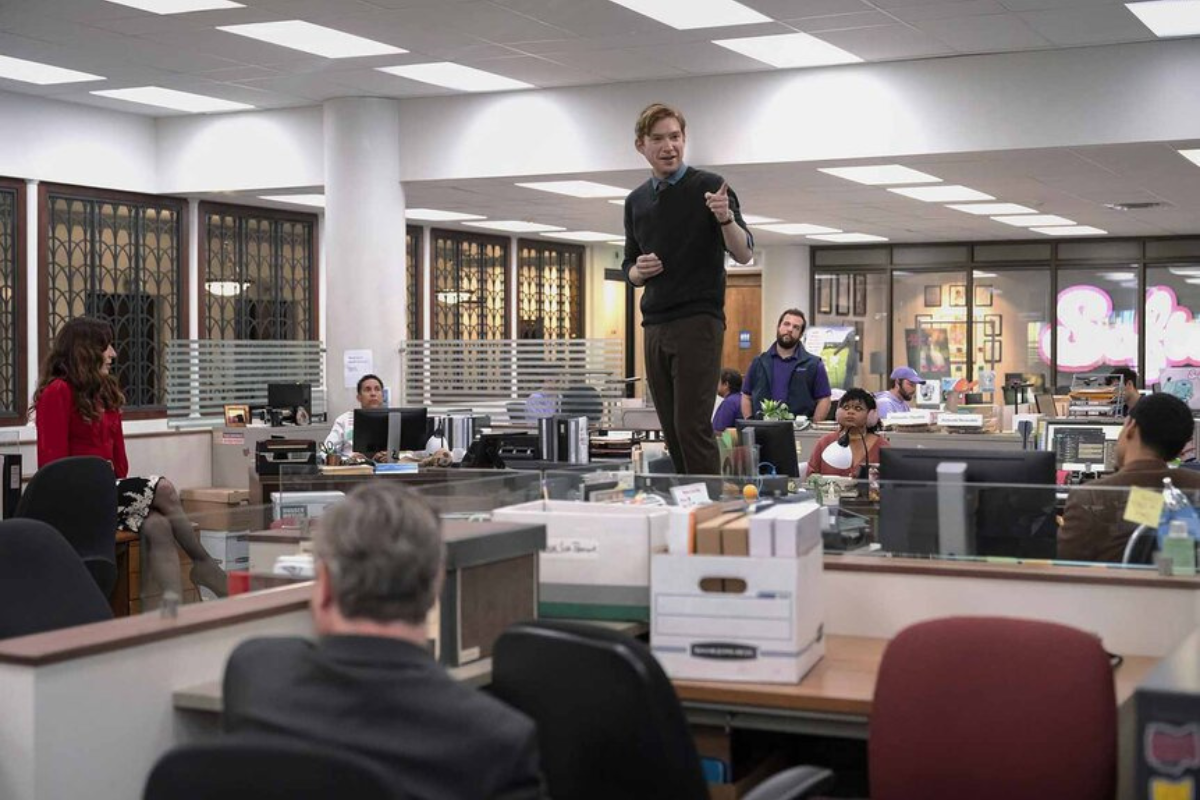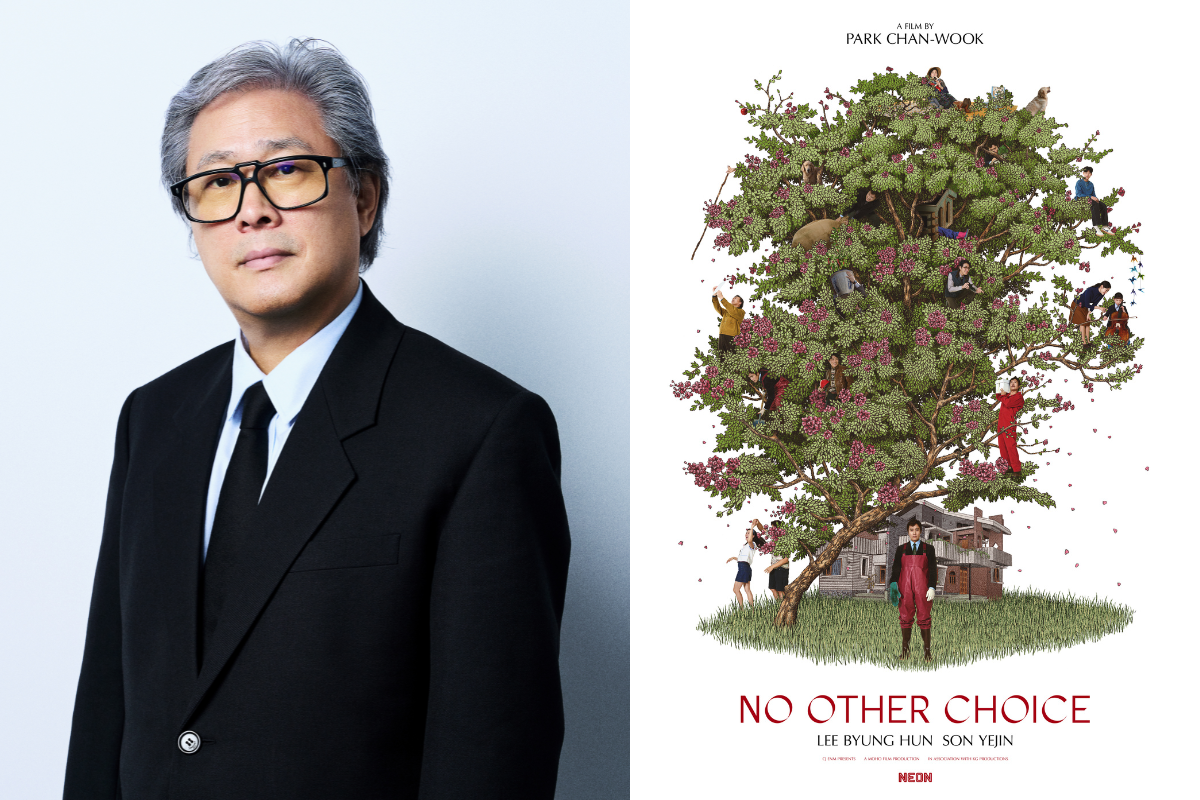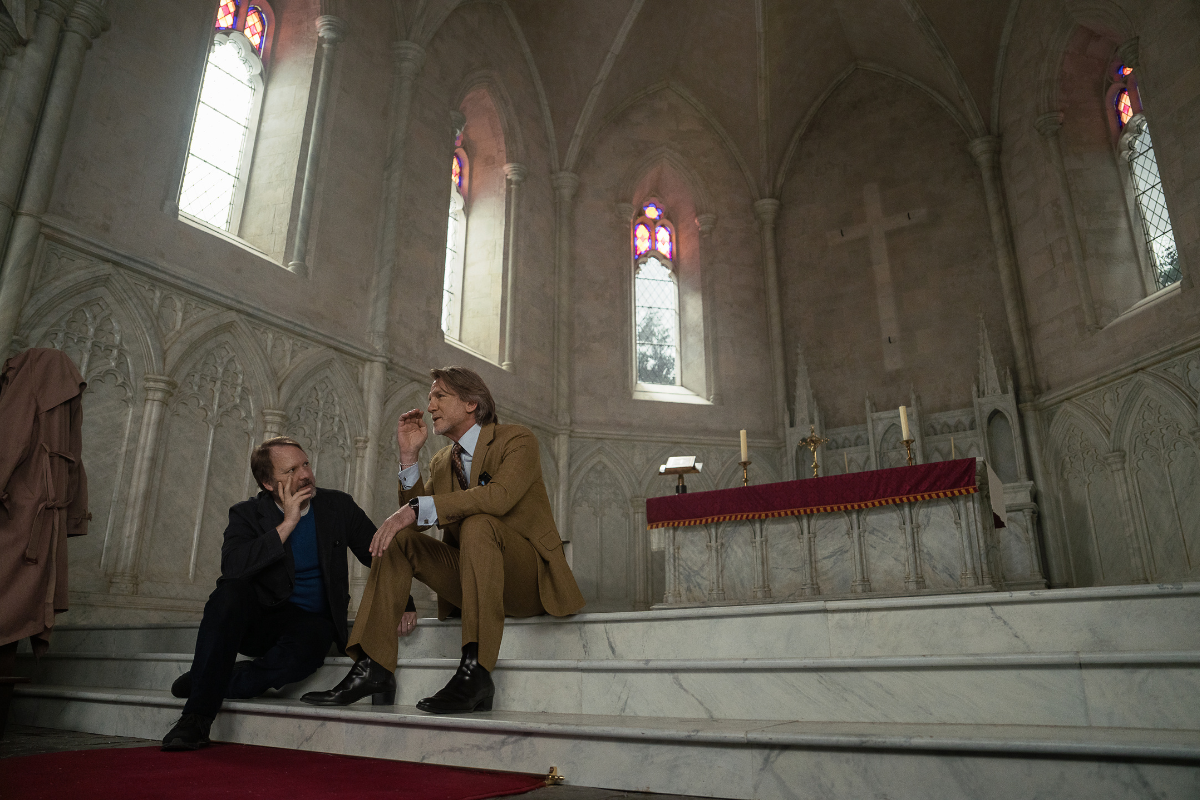Filmmaker Q&A – Kevin Epps on The Black Rock
Kevin Epps was raised in the public housing projects of the Hunters Point neighborhood of San Francisco, the eldest child of a single mother. He has never had to look far for subject matter for his documentary filmmaking.
by Frank Colin
Kevin Epps was raised in the public housing projects of the Hunters Point neighborhood of San Francisco, the eldest child of a single mother. He has never had to look far for subject matter for his documentary filmmaking. After taking classes at San Francisco’s Film Arts Foundation, he shot his first film, Ghetto Ganks!, with a borrowed Super 8 camera. That led to a two and a half year odyssey before he premiered Straight Outta Hunters Point at the San Francisco Black Film Festival in 2002. It is an insiders’ tour of the all-too-familiar housing projects of his youth, documenting the history of the neighborhood and the ongoing, extremely bloody conflict between two neighborhood gangs -- Big Block and Westmob.
In 2006, he released Rap Dreams (2006), which chronicles the dreams and the heartbreaks of three upcoming Bay Area rappers.
Everyone who lives in or visits San Francisco notices Alcatraz, the old federal prison, located out in the East Bay. But very few thought about it the way Epps did. One day while crossing the Bay Bridge, Epps found himself wondering about the black experience in Alcatraz - or if there were any black prisoners at all. That initial thought led him to research, and that research led to the creation of his latest documentary, The Black Rock.
Frank Colin: What inspired you to create The Black Rock?
Kevin Epps: The ideas and inspiration came from a series of overlapping thoughts. I was looking out at Alcatraz while riding across the Bay Bridge coming into The City. I’ve always had a fascination with Alcatraz—the stories and movies are romantic, the movies about Alcatraz romanticize the human experience. It’s a very intriguing place. I was in an activist state of mind as well, thinking about the disproportionate number of blacks in prison, a lot of my peers. I was also seeing these overlapping thoughts in a visual, frame-by-frame state of mind, and there was the impetus. Were there blacks in Alcatraz? And if so what is their story. I was once again fascinated, and I began the journey.
Q: How long did it take from idea to premiere?
Epps: Six years.
Q: What came first for you - research, interviews or...?
Epps: The research came first. I was researching the subject, trying to put names with the black faces that you see the backdrop of photos about Alcatraz. Once I started to learn about people, I started to do the interviews.
Q: How did you meet John Templeton and how did that evolve into your current relationship with him?
Epps: I know of John from his historical work on the Black/African-American experience. We had conversations about working together and this project accorded us the opportunity to work together, me film, John historian interpretation of the story helped from the story and a unique way.
Q: What were the challenges of working with the National Park system and how did you overcome them?
Epps: It was very challenging, I had to do so much research to uncover a new perspective. It was very interesting, very personal, and uncomfortable. It’s like reading someone’s most intimate thoughts, from a time long gone, for the very first time. Working with historical societies for accuracy and reference, I had to really immerse myself into the mind, body and souls of these people and get to know them very personally. Contemporary stories are relevant, information is current, the characters speak lyrics, they are alive. [With] the historical documentary, I had to bring their story to life with the incredible sources that I’ve had to work from. It was very challenging, but very insightful.
Q: Who's idea was it to hold the premiere on Alcatraz itself?
Epps: It was my idea and dream to premiere the film there, it was most fitting and appropriate given the subject matter and it was Black History Month.
Q: What do you plan to do with the film now?
Epps: I plan on distributing the film via traditional and new media distribution channels, as well as prepare for the film to be a part of the Alcatraz cultural exhibition, perpetually.
Q: Tell me a little about your growth as a filmmaker.
Epps: My growth as a filmmaker have evolved as I’ve gained experience from working on my projects and assisting other filmmaker with their projects.
Q: At what age did you decide to make documentaries?
Epps: I have always wanted to tell stories since I can remember.
Q: What was your first attempt at filmmaking?
Epps: My first was a film that I wrote and shot, Ghetto Ganks a coming of age story set in the urban city of America.
Q: Was that inspired by your community activism?
Epps: It was inspired by my experience of growing up in an urban community.
Q: What obstacles (if any) did you have to overcome and how did you accomplish it?
Epps: There were many obstacles to overcame, from funding to production challenges, some unforeseen, but the passion and desire to make this film overcame all the challenges.
Q: What is your creative process - how do your ideas get out of your head and on to the screen?
Epps: It went from idea to paper, synopsis, summaries, treatment, etc. I was able to visualize it from there.
Q: Do you write/storyboard/etc. every day?
Epps: I used the pre existing historical photos and images to lay out the storyboard and it gave me a clear vision of how I wanted to tell the story.
Q: How did Mastamind come about?
Epps: It was company that I started to produce, direct, and write films.
Q: Who are the principals?
Epps: It is a privately held company that have a slate of indie titles, Straight Outta Hunters Point, Rap Dreams, The Black Rock, etc.
Q: What is your goal for the company?
Epps: The goal of Mastamind is to continue to bring fresh stories with unique perspectives, especially about the black experience.
Q: Do you want to create/write/direct/produce feature film or TV?
Epps: I do plan on creating feature film and TV.
Q: Do you have any interest in writing short stories, essays, novels?
Epps: I recently co-wrote a companion book on Alcatraz, the same subject mater.
Q: What projects are you working on now?
Epps: I am working on a film about African-American pioneers and their contributions to Silicon Valley and technology.
Q: What project would you like to do in the future?
Epps: I would like to do a narrative on Alcatraz about the Black experience.
Q: What is your advice to aspiring filmmakers and writers?
Epps: Immerse yourself in learning everything you can and networking with the people that can help you get where you are trying to go.
Top screenwriting and film publication, founded in 1989, published by Active Interest Media. Twitter: @scriptmag







